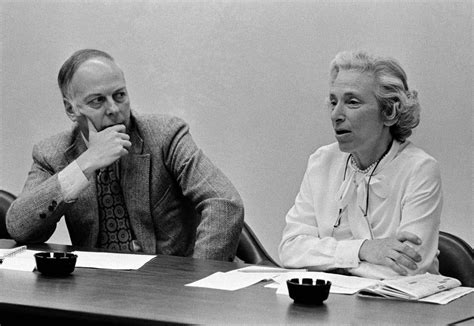A Quote by Elizabeth Kostova
I've always been interested in foreign relations. It's my belief that study of history should be our preparation for understanding the present rather than an escape from it.
Related Quotes
Very strange bridges are used to make the passage from one state of things to another; we may lose sight of them in our surveys of general history, but their discovery is the glory of historical research. History is not the study of origins; rather it is the analysis of all the mediations by which the past was turned into our present.
The 'black armband' view of our history reflects a belief that most Australian history since 1788 has been little more than a disgraceful story of imperialism, exploitation, racism, sexism and other forms of discrimination. I take a very different view. I believe that the balance sheet of our history is one of heroic achievement and that we have achieved much more as a nation of which we can be proud of than which we should be ashamed.
Moskin has brought together with care and lucidity an inside history of American diplomacy written through the eyes of the many diplomats who conceived and carried it out over 225 years. You experience the challenges, successes, and foibles. Over time, the Foreign Service evolved into a professional cadre serving the public and presidents, often at the peril of their lives. Anyone interested in understanding our diplomacy, what makes it tick, and how it strives to serve the public interest should read this masterful history.
In whatever sport of field of endeavor you are interested, you should do whatever is necessary to compliment your God-given talent with proper mental preparation so as to do "the best you can." The criterion should be to fully exploit your potential rather than to win at any cost. What more could anyone ever ask of you than to be the best you possibly can?
As for these 60 years, and in general more than a hundred years, we have had different periods in relations and there have been tragic pages in our history, but since 1956 when we restored diplomatic relations, regrettably, we have not had a foundation on which to build ties that would correspond to our wishes and that are currently required in bilateral cooperation with Japan.
For everything is history: What was said yesterday is history, what was said a minute ago is history. But, above all, one is led to misjudge the present, because only the study of historical development permits the weighing and evaluation of the interrelationships among the components of the present-day society.
I've always been interested in Vietnam, feel it's a seminal event in our nation's history, and have explored it over the years - but I hadn't been interested in doing a documentary about it. I felt there had been a lot done about Vietnam, and didn't know if I could add anything new to the discussion.



































